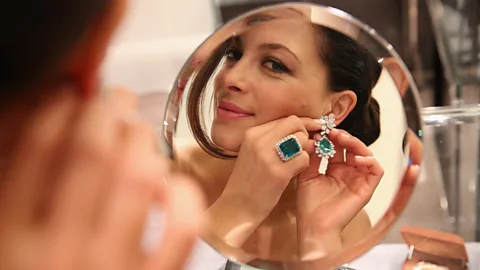What will millennials kill this year?
 Getty Images
Getty ImagesGen Y are blamed for the demise of so many industries that it's become a meme. Will the same happen this year? And if so, why?
Millennials killed a lot of things last year. Almost daily, it seemed, a headline would appear with news of an industry or institution falling victim to Gen Y disruption.
This trend has become so pervasive that the very phrase “millennials are killing” will now live on forever as a meme. So is this annoying trend likely to continue this year? Young people have hastened the demise of marriage, doorbells, napkins and even breakfast cereal – is there anything even left for them to kill?
We asked experts in research and marketing to predict what millennial-driven hype and hyperbole to expect in 2018. They identified some headlines that will no doubt be deliciously clickable (though of questionable accuracy) and looked beyond the hysteria to see what’s really driving these consumer trends.
The headline: Millennials are killing restaurants
What’s really happening: We already know that some chain restaurants are struggling to keep pace with the times, but that doesn’t mean the industry is dying. Chains with strong brands that heed youth-driven trends aren’t to worry, says Jeff Fromm, president of US-based consulting firm Futurecast. “I don’t see millennials putting Starbucks out of business.”
“The rate of change has been accelerated by mobile technology and the size of the generation,” says Jason Dorsey, president and lead researcher of millennials at the Center for Generational Kinetics. “Many of these legacy industries have hid behind boomers, and they can’t hide anymore.”
Still, some restaurants will fail to adapt to changing consumer tastes – and where they falter, others will flourish. For example, Dorsey predicts an uptick in “groceraunts”, grocery stores that offer healthy prepared or easy-to-prepare meals to be consumed at home. We can also expect to witness the rise of the “ghost restaurant”, a delivery-only restaurant that essentially doesn’t exist beyond its online presence. “It’s delivery only, through a mobile app,” Dorsey explains, “with three to five restaurant concepts sharing one commercial kitchen.”
 Getty Images
Getty ImagesThe headline: Millennials aren’t buying luxury goods
What’s really happening: There is a backlash against conspicuous consumption of blatantly flashy items like diamond rings and expensive cars, Dorsey says. But that doesn’t mean young people aren’t spending – in fact, in his research he found millennials broke their spending record last year, opting for short-term indulgent experiences like weekend trips, spa days and wine tours. And when they need shiny objects, more are opting to rent luxury goods such as cars and designer clothes.
Adam Henderson, founder of UK-based research and consulting firm Millennial Mindset, expects to see more investment in experiences, as well as self-development and self-improvement – in other words, learning. But he predicts this won’t necessarily be in traditional academic settings, which tend to be expensive. Instead, we’ll see a shift towards cheaper and more accessible “commoditised learning”, which includes online courses and workshops led by professionals from around the world.
 Getty Images
Getty ImagesThe headline: Millennials are murdering gyms
What’s really happening: “Millennials are going to kill the traditional gym, no doubt about it,” Dorsey says, but fitness and wellness are more important than ever. “For millennials, this is the time to work on health and wellness because our bodies are starting to fail. A sense of mortality is starting to kick in,” he suggests.
Instead of free weights and circuit training, he says, the future is in specialised fitness classes that offer community, camaraderie and even competition, which is why memberships to subscription services like ClassPass are becoming so popular. For traditional gyms to stay relevant, they’ll need to adjust offerings to include classes, community-centred facilities, and convenience services like babysitting and juice bars.
 Getty Images
Getty ImagesBlame game
So, are millennials actually to blame for industries’ deaths?
“The real issue is not that millennials are not killing industries or businesses, but businesses aren’t adapting,” Dorsey says.
“Millennials are the canary in the coal mine regarding trends. Innovation is going to be required,” says Fromm. “The important thing we’ll see is the impact the millennial influence on Gen X and Baby Boomer buying patterns.”
To comment on this story or anything else you have seen on BBC Capital, please head over to our Facebook page or message us on Twitter.
If you liked this story, sign up for the weekly bbc.com features newsletter called "If You Only Read 6 Things This Week". A handpicked selection of stories from BBC Future, Culture, Capital and Travel, delivered to your inbox every Friday.
{"image":{"pid":""}}
